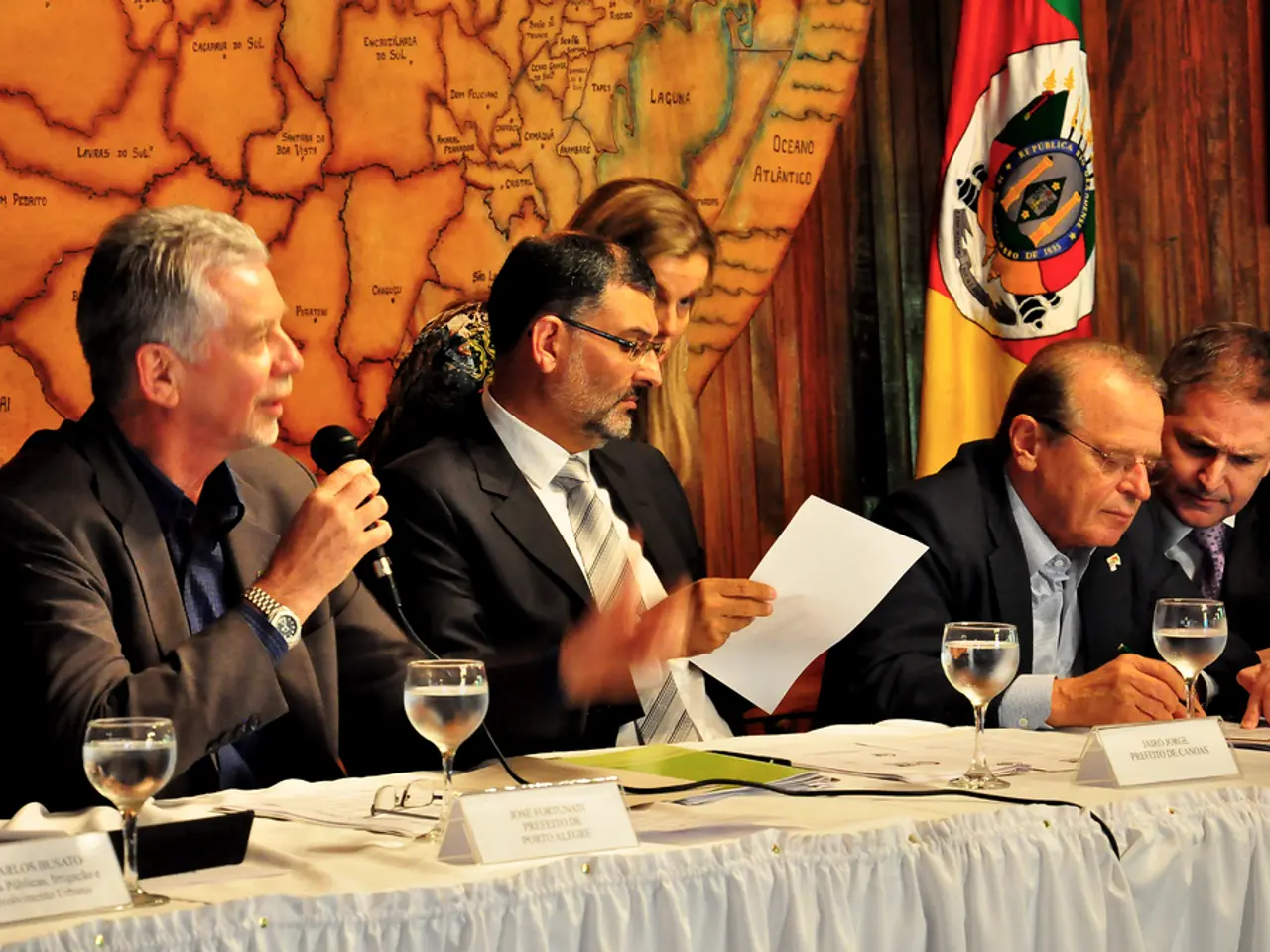ceased facilitating the Multistate AI Policymaker Working Group as of February 25, 2025
A Collaborative Effort to Shape AI Policy: The Multistate AI Policymaker Working Group (MAP-WG)
The Multistate AI Policymaker Working Group (MAP-WG) is a bipartisan coalition of state lawmakers from over 45 states, working together to influence and shape responsible AI governance at the state level. The group, convened by the independent think tank, the Future of Privacy Forum (FPF), serves as a neutral platform for expert, bipartisan conversations about emerging technologies, including AI.
The MAP-WG is led by a bipartisan steering committee, chaired by Connecticut Senator James Maroney (D). Other members include Alaska Senator Shelley Hughes (R), California Privacy Protection Agency Deputy Director of Policy and Legislation Maureen Mahoney, Colorado Senator Robert Rodriguez (D), Florida Representative Fiona McFarland (R), Maryland Senator Katie Fry Hester (D), Minnesota Representative Steve Elkins (D) and Kristin Bahner (D), New York Senator Kristen Gonzalez (D), Texas Representative Giovanni Capriglione (R), and Virginia Delegate Michelle Maldonado (D).
The group's role is multifaceted. It advocates for state innovation in AI policy, emphasizing that states often serve as the "spark" for effective governance innovation. The MAP-WG expresses opposition to federal proposals that would impose moratoriums on state AI laws, arguing such limits would undermine states' ability to protect consumers and innovate in AI regulation. The coalition also signals its readiness to lead AI policy development and to partner with the federal government for coordinated and balanced AI regulation.
In Texas, for instance, Rep. Capriglione held local engagement processes and local hearings to take input as he drafted a bill to respond to Texas stakeholders' concerns about AI. However, it's important to note that FPF did not play any role in the Texas AI bill sponsored by Rep. Capriglione, nor has it taken a position on it.
The scope of the MAP-WG extends to areas such as data privacy, enforcement, regulation, AI workforce development, and combating non-consensual intimate images. The group seeks to navigate challenges related to AI technologies by fostering collaboration and promoting better understanding.
FPF's credibility as a neutral convenor and thought leader is crucial to serving as a bridge between lawmakers, companies, and other experts. The organisation's work, including its work supporting the MAP-WG, is funded primarily by the private sector.
Despite recent misperceptions about the group, FPF remains committed to its work with the MAP-WG. The organisation is excited to convene the expanded MAP-WG in the lead-up to the 2025 legislative session and has launched a dedicated landing page (our website/multistateAI) to share the group's purpose, resources, and insights.
FPF does not work to import European-style regulation into US states and agrees with Vice President JD Vance's stance that American leadership on AI is necessary. The group's work is focused on fostering collaboration and promoting better understanding, not on imposing specific regulations.
It's also worth noting that the government grants referenced in a recent op-ed do not fund the Multistate AI Policymaker Working Group. These grants support training in support of cross-border data flows and efforts to advance privacy enhancing technologies. FPF has neither sought nor received grant support for its work facilitating the multistate group or for other work regarding state legislation.
In conclusion, the Multistate AI Policymaker Working Group (MAP-WG) plays a crucial role in shaping AI policy in the U.S. by fostering state-level leadership, collaboration across political lines, and engagement with federal initiatives. The group's work is a testament to the power of collaboration in navigating the complex landscape of AI policy.
- The Multistate AI Policymaker Working Group (MAP-WG) advocates for state innovation in AI policy, with a focus on areas such as data privacy, enforcement, regulation, AI workforce development, and combating non-consensual intimate images.
- The MAP-WG serves as a neutral platform for expert, bipartisan conversations about emerging technologies, including Artificial Intelligence (AI).
- The group expresses opposition to federal proposals that would impose moratoriums on state AI laws, arguing such limits would undermine states' ability to protect consumers and innovate in AI regulation.
- The MAP-WG is a bipartisan coalition of state lawmakers from over 45 states, working together to influence and shape responsible AI governance at the state level.
- The role of the Future of Privacy Forum (FPF), an independent think tank, is crucial in serving as a bridge between lawmakers, companies, and other experts, fostering collaboration and promoting better understanding in AI policy and legislation.
- In general news and politics, the MAP-WG is readying to lead AI policy development and to partner with the federal government for coordinated and balanced AI regulation.
- The MAP-WG's education and self-development initiatives aim to navigate challenges related to AI technologies and promote a better understanding of AI among state lawmakers.




